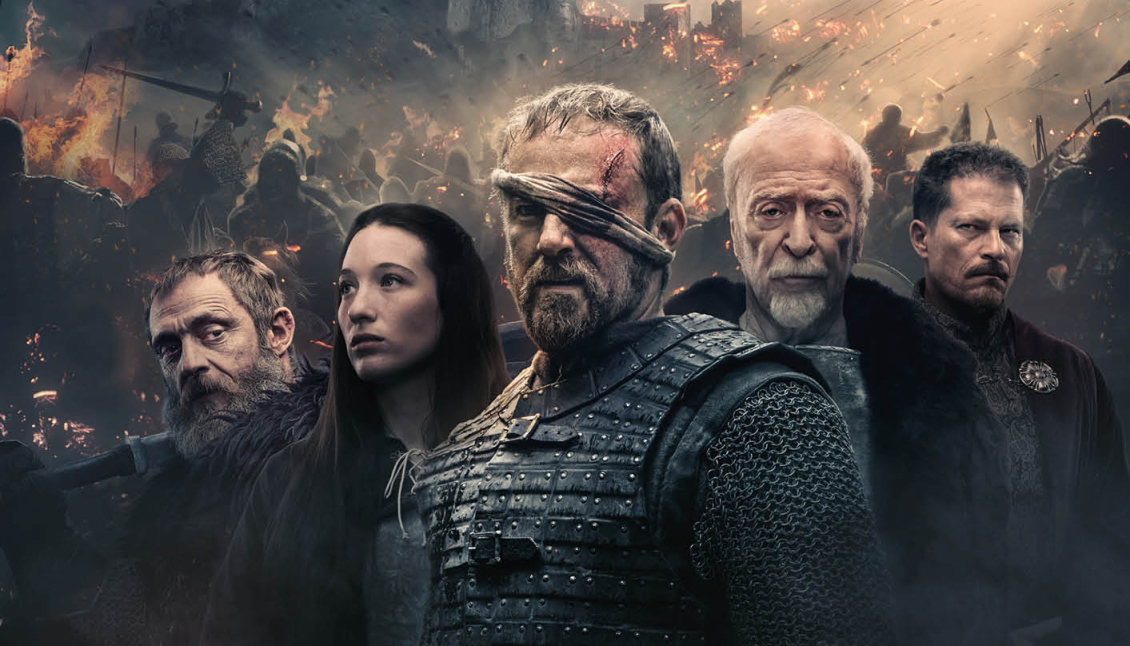Period or historical dramas have become the recent hype of theatres and streaming services. But productions like Game of Thrones, and recent releases like House of the Dragon, have set the bar so high that even the most expensive film in Czech history looked mediocre in comparison. Medieval, directed by Petr Jakl, is what you might call a bleak attempt at a crash course in Czech history.
The Czech History Crash Course: Summary
Ill fortune engulfed Europe after the death of Charles IV, the Holy Roman Emperor. The political disorder aggravated to such an extent that there were two rival Popes with different opinions on who should be the next Roman King. The Bohemian King, Wenceslaus IV, was the designated successor of the former Emperor. But the treachery of his allies and the machinations of his half-brother, Hungarian King Sigismund, undermined his claim. Meanwhile, Henry of Rosenberg and other noblemen like him continued to harass the kingdom’s subjects.
Rosenberg had the wealth to further Wenceslaus’ cause, but he was an ambitious man. To gain Rosenberg’s support for the monarch’s “noble” cause, Wenceslaus and his imperial advisor Lord Boresh hatches a plan to abduct the nobleman’s fiancé. Jan Zizka, a mercenary, becomes a pawn in an elaborate scheme. But the high powers of Europe didn’t know that he would soon become the most formidable military commander in Czech history.
Character Analysis

The protagonist, Jan Zizka (Ben Foster), leads a group of mercenaries and abducts Lady Katherine, the fiancé of Lord Rosenberg, against his better judgment. Unknowingly, stoic and sour-faced Zizka finds himself caught between the feud of the weakening Bohemian King and his conniving brother Sigismund (Mathew Goode). The warrior has a target on his back and is constantly on the move because Torak (Roland Moller), Sigismund’s frontrunner, is chasing Zizka like a hound. If you look closely, there is a subtle antagonism between Torak and Zizka, which later transforms into a rage.
Things do not look good for the abductors, and Lady Katherine (Sophie Lowe) certainly doesn’t make them better. A free-minded woman of her stature and will wouldn’t like to be dragged across woods on horseback. Katherine is the antithesis of Rosenberg. Although royalty, she is more concerned about the kingdom’s subjects than the privileges of her position. Her conversations with Zizka were intriguing as they concerned God and faith. Zizka, being the frustrated warrior, talks about fatalism and how everything is God’s Will-; it’s like his views and presence demanded Katherine’s attention.
When it comes to the characters, I ask myself, “Did they need Michael Caine?” There is no question about Caine’s acting ingenuity. But Lord Boresh’s character was fictional, which served no ulterior purpose. His sole role in the film was to provide a piece of advice that would change the coming days of the Roman Empire. It sounds good in theory when you talk about history but not in movies.
The Visual Journey of the Movie

Watching the movie, you experience the gloominess of impending doom. Costumes and props signified the days of 14th-century Europe as much as they could. But the direction looked haphazard. It felt like watching the same thing over and over again at different locations. There seemed to be constant running with small battles at every place.
Some of the early dialogues dragged on for too long. Zizka also had very little to say and too much to do in the film, which showed him as a game-changer. But his entire moral stance was represented by ‘either you choose to fight, or you don’t.’ – that’s oversimplified and straightforward. Viewers often prefer a protagonist whose moral grey areas are explored such that the audience gets entangled in their moral dilemma just as much. Either that or you need to have such powerful dialogues coming from the leader to his army that even the audience will feel the urge to join him in the battlefield.
Which one did we experience? Unfortunately, neither.
The film relied more on the story than on the performance of the cast. I thought the actors were replaceable and any other cohort of stars could do what they did.
For instance, Ben Foster looked like a study and stoic man who knew how to wield a sword. But is that enough?
I remember watching Brad Pitt in Troy, and I used to think that Brad wasn’t just emulating Achilles. If Achilles were present today, he would probably be someone like Brad in that movie. That is the bar of such historical dramas.
Did the actors deliver dialogue well? Yes.
Was their performance amateur? No.
But their acting wasn’t enough to show how the characters related to each other. The film focused on “a big change” that was coming. How did this monumental change affect Jan or Katherine, or Boresh?
This film showed that an intriguing plot might not be enough if your cast isn’t compelling.
Final Thoughts
The film delivered upsetting battle sequences. Most of them were over-hyped, with the camera constantly rolling. Instead of compelling, the scenes turned out to be distractions because of over-exposure. Medieval did succeed in showing the grittiness of the battles through their sound designers. You could hear every metal screeching and grinding against one another. The soundtrack was more impactful than the visuals.
Medieval had everything a period drama theoretically must tick: battle scenes, false alliances, betrayals, emotional appeal, and whatnot. But the trouble is they tried to fit the story of a monumental warrior into a 2-hour film. While other movies like The Northman were successful in doing so, Medieval came up short.







